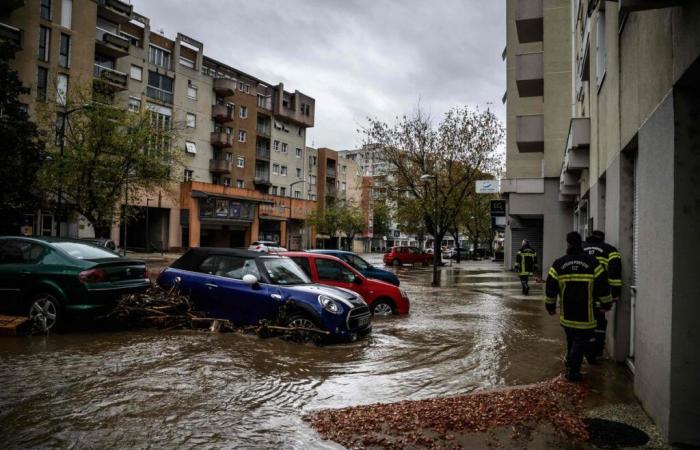Will all the mayors of France have to imitate their colleague from Breil-sur-Roya (Alpes-Maritimes) who has just issued a municipal decree prohibiting fires, floods, violent winds, avalanches and other electrical damage? A deliberately absurd decision in response to the decision of its insurance company, the Mutual Insurance Company of Local Authorities (SMACL), to give up guaranteeing the buildings of the village, devastated in October 2020 by storm Alex.
Closer to us, it is the city of Poitiers, led by the ecologist Léonore Moncond’huy, which has decided to no longer insure its municipal buildings (the automobile fleet or works of art are not concerned) . Until December 31, the Vienne prefecture contributed 163,000 euros per year but its insurance company presented it with an invoice for 540,000 euros. An increase of around 230% is hard to digest for a municipality which, like its counterparts, must tighten its spending and finds itself with a knife to its throat.
A political file
LR Mayor of Vesoul, Alain Chrétien knows the file well. He was confronted with it himself in October 2023. “My general director of services announced to me that our insurer was terminating our contract unilaterally and without notice,” he explains. Vesoul has not, however, been the victim of natural disasters or urban riots. » Vice-president of the Association of Mayors of France, Alain Chrétien informs his N+1, David Lisnard, and discovers that several hundred municipalities in France are facing this same coup from insurance companies.
With Landais Jean-Yves Dagès, former president of Groupama and former mayor (for nineteen years) of Poyartin, Alain Chrétien was entrusted with a mission on this subject. “We were supposed to return it in June to Bruno Le Maire but, as you know, there were some political twists and turns, the dissolution and then censorship of the government. » In short, the report is biding its time but the mayor of Vesoul considers that it must be put back on the top of the pile. “This is a very political issue,” he emphasizes, “and we therefore need a political response, even if a private company has the right to say no to a client or to increase its contribution. . Except that we, local authorities, manage public facilities. »
In Vesoul, Alain Chrétien signed a new contract which increased from 100,000 euros to 300,000 euros annually. “And we will have to renegotiate in two years,” he specifies. “I don’t have to comment on Poitiers’ decision but I think it is imprudent not to make sure. If a child is injured in a school, the town hall may be held criminally liable. And if a school burns down, she will have to rebuild it at her own expense. »
Find the competition
In France, there are around 1,500 municipalities which have had to face the intransigence of their insurer. Which is not a lot in a country which has around 35,000 mayors. “Rural villages are little involved because there are few buildings to insure,” emphasizes Alain Chrétien. The problem begins above 3,500 inhabitants. »
And where does this problem come from? First, an explosion in spending due to climate change: drought, floods, fires. In 2023, the bill rose to 6.5 billion euros in damage in the country, compared to an average of 3.7 billion in the 2010s. Upstream, insurance companies also played with fire . “Around ten years ago, they raced for customers by reducing their prices by 7% on average,” explains Alain Chrétien. They collected less revenue but had to repay much more. »
“Many of them have deserted the market, like Axa, Generali or Allianz,” adds the former boss of Groupama, Jean-Yves Dagès, who singles out SMACL as the origin, according to him, of this competitive frenzy. This almost collapsed the mutual, now owned by MAIF which had to recapitalize it massively. “There are only two players left facing local authorities, Groupama and SMALC,” summarizes Jean-Yves Dagès. We need to find a truly competitive market and, for that, we need to bring back the insurers who have left. »
For Alain Chrétien, and despite the current ministerial instability, it is urgent to sit around the same table local authorities, insurers and government to rethink the system of calls for tenders and standards which, according to the AMF, poisons the life of the city councilors. And it is not the insurers who will say the opposite.






